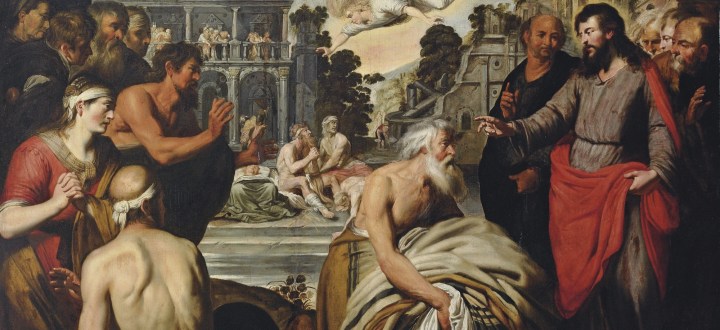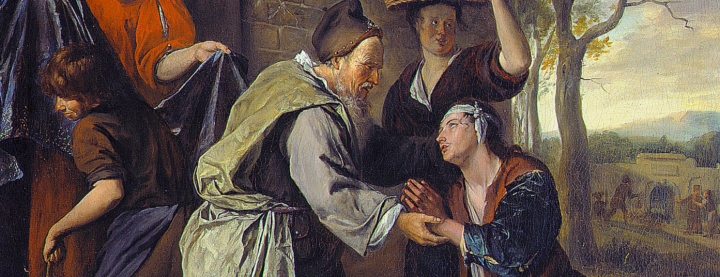What scripture says about the profound mystery of the Christian’s participation in God’s own divine nature is echoed in the liturgy and in the writings of saints and theologians:
“He has bestowed on us the precious and very great promises, so that through them you may come to share in the divine nature …” (2 Peter 1:4).
“For in him dwells the whole fullness of the deity bodily, and you share in this fullness in him” (Colossians 2:9-10).
“By the mystery of this water and wine may we come to share in the divinity of Christ who humbled himself to share in our humanity” (Liturgical prayer during the preparation of the gifts).
“When the Christian dares to pronounce such a name [as Abba, or Father], he is not calling upon the loving providence of God the Creator, but more specifically upon the fatherhood by which God has communicated his own nature to him” (Ceslaus Spicq, OP, The Trinity and Our Moral Life, according to St. Paul p. 70).
“The moral life is a prolongation, an extension, an unfolding of the life of Christ in his disciples.” (Ceslaus Spicq, OP, ibid, p. 50)
“God became man that man might become god.” (St. Athanasius)
“One day in the heavenly Zion they will see Christ as the God of gods, as the one who being God, will deify his own” (St. Bruno, cited in Liturgy of the Hours, volume IV, p. 241).
“God has predestined us to be not only creatures, but His children … Thus to share in His divine nature” (Blessed Columba Marmion, Christ, the Life of the Soul, p. 13).
Coming to fully understand what the Church teaches, in all these ways and more, we may conclude with certainty that there is no other redemption than sharing in God’s divine nature. It would be beneficial to follow the advice of Blessed Marmion: “We cannot sufficiently appreciate the greatness of these dogmas (about participation in divine nature) and their profit to our souls unless we contemplate them at some length” (ibid., p. 8).




